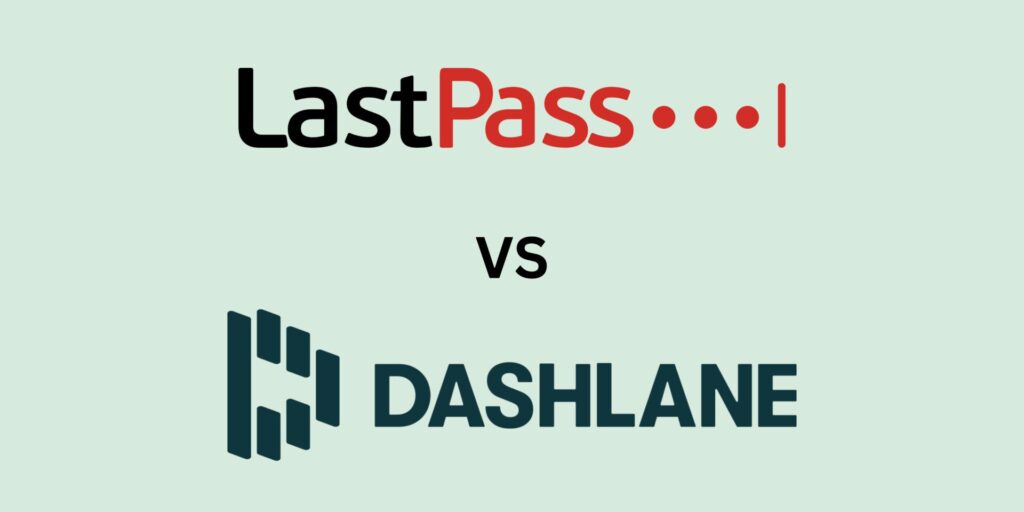
Choosing the right password manager is critical in today’s digital world. Two of the most popular and trusted options are LastPass and Dashlane. Both have many similarities but also some distinct differences that might influence your choice. In this article, we’ll look at the features, security, pricing, and usability of LastPass and Dashlane, to help you determine which one is right for you.
| LastPass | Dashlane | |
|---|---|---|
| Features | Unlimited password storage, secure vault, password sharing | Password storage, secure vault, password sharing, VPN, Password Changer |
| Security | AES 256-bit encryption, Two-factor authentication | AES 256-bit encryption, Two-factor authentication, Security dashboard |
| Pricing (Yearly) | Free version, Premium: $36, Family plan: $48 | Free (up to 50 passwords), Premium: $59.99, Family plan: $89.99 |
| Usability | User-friendly interface, Accurate autofill | User-friendly interface, Accurate autofill, Security dashboard |
Features
Both LastPass and Dashlane offer features that you would expect from a password manager, including password generation, autofill, and the ability to sync across multiple devices.
LastPass offers unlimited password storage on its free plan, a feature which sets it apart from many competitors. It also provides a secure vault for storing digital records, like passports and driver’s licenses, and even allows for sharing of passwords with trusted people.
Dashlane offers a similar set of features, but it goes a step further by providing a VPN for an extra layer of security. It also includes a feature called “Password Changer” which can automatically change passwords for supported sites, increasing your online security.
Security
Security is the cornerstone of any password manager. Both LastPass and Dashlane use AES 256-bit encryption, which is considered the gold standard in the industry.
LastPass offers two-factor authentication (2FA) for an extra layer of security. It does not have access to your master password and hence cannot access your vault, ensuring complete privacy.
Dashlane also provides 2FA and uses a Zero-Knowledge architecture, meaning only you have access to your data. Its unique security dashboard gives personalized advice to improve your password health, thus boosting your overall security.
Pricing
LastPass has a free version with basic functionality. Its premium version costs $36 per year and offers additional features like 1GB of encrypted file storage, emergency access, and priority tech support. LastPass Families, which allows sharing with up to 6 users, costs $48 per year.
Dashlane has a more limited free version, allowing storage of up to 50 passwords only. Its premium plan is $59.99 per year, which includes features like unlimited password storage, secure file storage, VPN, and dark web monitoring. A Family plan for up to 5 users costs $89.99 per year.
Usability
LastPass has an intuitive and user-friendly interface. You can easily navigate through different sections and find what you need. Its autofill is fast and accurate, which is helpful when logging into different accounts.
Dashlane also offers a user-friendly interface, and its app is easy to navigate. Dashlane’s autofill is similarly efficient, and the security dashboard is a great tool for maintaining password health.
Conclusion
Both LastPass and Dashlane are excellent choices for a password manager. Your final decision will depend on what specific features and pricing suit your needs. If you are looking for a cost-effective solution, LastPass is hard to beat with its unlimited password storage on its free plan. Dashlane, on the other hand, may be worth the extra cost for its unique features like the VPN and Password Changer. Both services are highly secure and user-friendly, so you can’t go wrong with either one.